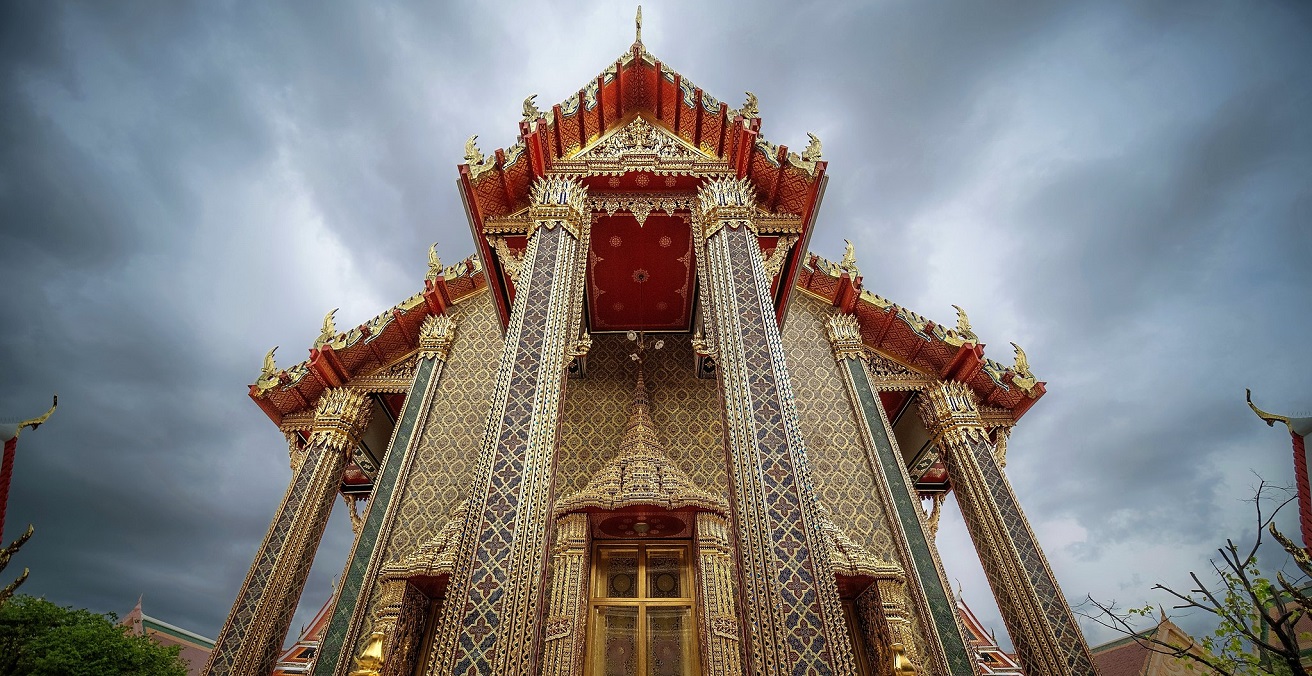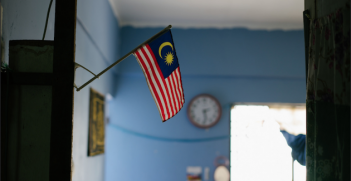2021 in Review: The Rise and Rise of King Rama X

Thailand is not undergoing a resurgence of hyper-royalism. Rather, the new Thai King is repositioning the Thai monarchy as simultaneously a constitutional monarch and a direct political player, which could have dire consequences for all future Thai governments.
In the past year, many commentators were arguing that Thailand is undergoing a resurgence of hyper-royalism. King Vajiralongkorn, officially known as King Rama X, has taken direct control of the Crown Property Bureau and imposed his will on the new Constitution. He has also inserted his own men into the military hierarchy, and if rumours are to be believed, has even established a private jail where soldiers who displeased him can punished.
Additionally, he has introduced royal customs long abandoned, the most prominent being taking on a royal consort, effectively as a royal concubine. Another famous tradition revived was a barge procession as the final part of his coronation process held in 2019. The king’s vessel was placed in the centre of 52 gold-painted barges along the Chao Phraya River, something that even his father, King Bhumibol, did not carry out.
All these moves have been executed despite the fact the king spends half his time in Germany, where there are widely circulated pictures of him wearing what can only be termed as inappropriate clothing in public. His stay in Germany has caused political problems for the host government, and Thai taxpayers have been forced to fork out millions of dollars in unnecessary expenditure to maintain him and his huge entourage. All this has happened while the Thai government at home have attempted to contain the spread of COVID-19.
The new king has already been widely ridiculed for introducing a special haircut for Thai security forces and a new salute, translated from Thai to English as “raise your chest and shake your head,” in efforts to show that he controls the military directly.
The current administration of Prime Minister Prayut Chan-o-cha is known to have given up trying to limit the role of the king, and in fact, is now trying to do the reverse. The number of Thais arrested and charged for Lèse-majesté, known in Thailand simply as S112, has risen dramatically. As well, the authorities regularly go after ordinary Thais for their posts on social media. Some activists have even accused the government of assassinating dissidents outside Thailand. Simply put, the Prayut military government has decided that the major portion of its political legitimacy must come from the palace. Hence, one should not be surprised that Prayut sees the media as an unnecessary nuisance and worthy of contempt.
You could be forgiven for believing that the only conclusion most have come to is that Thailand is no longer a semi-democracy, and that it now suffers from hyper-royalism. Others simply see the new king as a “nut” trying to bring Thailand back to absolute monarchy rule through seemingly trivial actions. Both sides, however, agree that Thailand will never progress to be a modern, progressive state while feudalism is not discarded. I would argue that both views, while mostly valid, are missing the point.
A much better explanation of what is happening in Thailand is simply that it represents the continuation of traditional royal families in the region trying to adjust to the modern state. What is different now is that the modern state that the previous generation of royals ceded to, that being a rigid form of constitutional monarchy with symbolism, no longer exists. We now live in a social media age where nobody can effectively control the narrative or the flow of news – fake or otherwise. In this social media space, the concept of royalty does not easily fit with the Facebook, Twitter, Instagram, and Clubhouse generation. This generation sees the king and the royals as simply another privileged class, albeit one that sits on top of the privileged tree.
This issue is compounded by the rise of strongmen and right-wing politics in the past few years in the Southeast Asian region. Observing the embrace of Rodrigo Duterte in the Philippines, Hun Sen in Cambodia, Mahathir Mohamad (briefly) in Malaysia, Lee Hsien Loong in Singapore, the military in Myanmar, and leadership in Vietnam exposes that many Southeast Asian nations are devotees in the strongman approach to governance.
Thus, in such an environment where social media can easily call into question why countries need a royal class that “does nothing much but costs a lot,” it makes sense for royals to inject themselves into the political class, although in a right-wing political class of their own. They want to show, although they are supposed to be “above politics,” that they can still interfere in politics while claiming their political action is “not” political but rather a “check” on politicians who, by nature, cannot be fully trusted.
In a way, the royals have become the new strongmen in the region. They cannot be removed easily, they appeal to populists by plying right wing politics, and, best of all, usually laws are entrenched protecting royals from direct criticism. The Lèse-majesté laws are world famous. The net effect is hybrid feudalism, where the polity is supposed to always side with the royals who clash with the political class, and in the process, view royals as an essential part of the governing system.
This was what the late King Bhumibol did his entire reign. He shepherded Thailand into modernity with feudalism concurrently, where all his political actions were portrayed in relation to what father would do for his family. As the Thai “children” came of age, his right-wing political actions were now re-cast as “above politics,” functioning as a check on the military and the political class.
In summary, what is happening in Thailand is simply Vajiralongkorn repositioning the Thai monarchy. In this new position, the Thai monarchy is both a constitutional monarch (“above politics”) and a political player (“right-wing strongman”). This will ensure the survival of the Thai monarchy well into the 21st century and maybe even longer. Far from being a “nut” or trying to bring back absolute monarchy, Vajiralongkorn is playing both sides. So far, he looks like he is succeeding to the great constellation of Thai democracy activists and their academic supporters overseas. My guess is that King Vajiralongkorn will get away with it, despite his bad reputation inside and outside of Thailand.
The bad news is that other royal households in the region are watching closely. They are waiting to see if they can import this Thai model to their own country.
This article was originally published on 23 March 2021.
James Chin is a council member of the Tasmania AIIA branch and professor of Asian Studies at the University of Tasmania.
This article is published under a Creative Commons License and may be republished with attribution.





